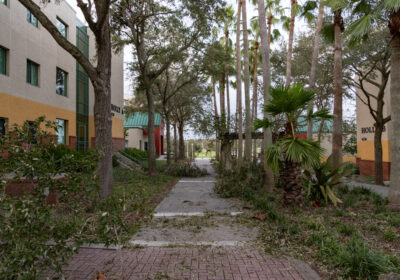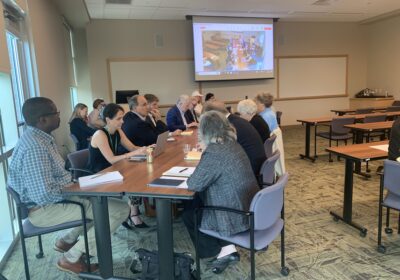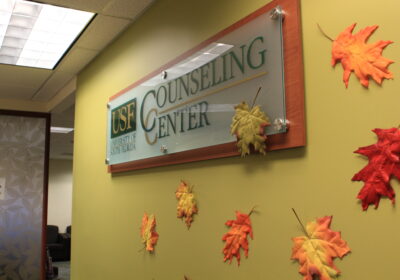Expo explores science behind music

ORACLE PHOTO/ZACH LEETE
The way people interact with music, from inception to funeral reception, can help unlock the mystery of skill development.
Every other year, music education pioneers assemble at the USF School of Music for the Suncoast Music Education Research Symposium (SMERS) to discuss topics such as whether children can learn the fundamentals of music more easily on an iPad than a traditional instrument, or whether age plays a hand in the degree to which people can learn to play music.
The conference, which is dedicated to music education across the lifespan, took place Wednesday thru Saturday. The chair of the Adult & Community Music Education Special Research Interest Group, Jennifer Bugos, hosted the event.
“No one is ever too old to begin to learn an instrument,” Bugos said. “Neural plasticity extends throughout the lifespan. It is true that the brain is more malleable at a younger age. However, research suggests that learning occurs throughout the lifespan.”
Equal parts discussion forum and lecture series, the conference brought together educators from five countries to disseminate groundbreaking research dedicated to unlocking the secrets of musical learning and development over a lifetime. Over a hundred educators, musicians and psychologists presented their studies during the three-day conference.
Some results showed children can learn the fundamentals of music more easily on an iPad, thanks to the accompanying visuals found in today’s apps. Others confirmed that age affects the ability to learn music, but not our capacity to appreciate it.
“Interdisciplinary research broadens our understanding and our knowledge base while informing teaching and learning practices at all levels,” Bugos said. “For instance, (one presenter’s) work suggests that musical training enhances auditory processing and may protect against some aspects of age-related loss.”
Age was the primary factor being studied in relation to music education at the symposium, such as discovering it’s never too late to become a singer. However, the approach to learning will be different than methods used on young musicians.
One researcher also found that a self-identified non-singer can learn to sing more quickly than assumed possible. Another researcher contested that children with autism can learn to sing just as well as most other kids.
Other presentations discussed the positive effects of music on Tourette patients. Another examined the excellent working memory of jazz musicians.
Friday’s events concluded with an elaborate banquet and musical performance. The USF Jazz Combos, which consists of graduates and undergraduates, entertained the packed concert hall. Watching the older members of the band merge effortlessly with the younger members resonated with the theme of the symposium — music learning across the lifespan.
“Last year, we had 70 submissions,” Bugos said. “This year, we had 130 submissions from five countries — Ireland, Canada, Turkey, Netherlands and the U.S. The conference has become larger and more global in nature.”






